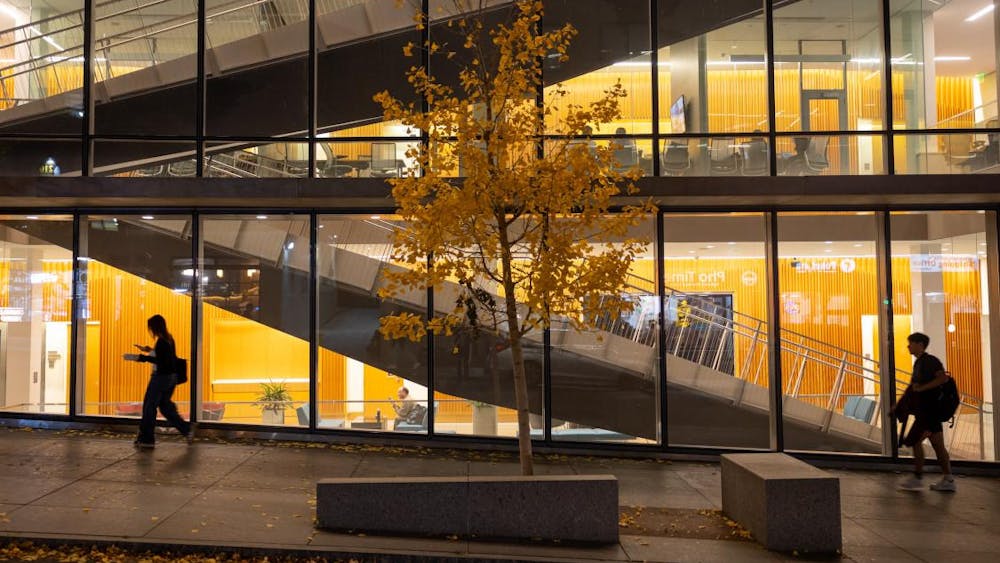A message arrived in my tip jar last week. It was quiet, vulnerable and honest in a way few of us feel allowed to be in public.
The writer spoke about living with ADHD and shared how stimulant medication has helped them manage its practical dimensions, even while a recent New York Times article made them rethink the very framework in which we understand it: not so much as a disorder, but as a condition shaped by environment, expectation and emotion. That insight sparked a wider, more personal reflection: What if Cornell isn’t the right place for me? “I have come to realize that I do not belong at Cornell,” they wrote — not as a cry for help, but as a serious and reflective observation.
They described having “piecemeal friends,” belonging to clubs that didn’t nourish them, and wondering whether transferring was too late — whether the dissonance they felt would follow them anywhere. Now that their final year is approaching, they were thinking about how it could end much like it began: uncertain, full of questions, with no grand revelation. “I truly thought I would come into Cornell with a direction, but honestly, I am going to leave just as confused as I came.”
That sentence stayed with me. Because so many of us are taught that college — or any chapter of life, really — should culminate in clarity. But what if it doesn’t? What if the takeaway isn’t a polished résumé or a sense of purpose, but just a few threads you’ve begun to follow, even if they don’t (yet) form a whole?
And given the stakes — financial, emotional, social — not to mention the narrative pressure placed on college as “the best years of your life,” there is also a strong expectation to love it here. And to love it publicly. As if you’re supposed to shout it from the rooftops. But not everyone does. And that’s okay.
I would like you to know this: Confusion is not failure. It’s not a flaw, or something to be ashamed of. It’s often the best proof that you’re still thinking, still feeling, not settling yet. Confusion can be information — a signal that your internal compass is working, even if it’s currently spinning. That’s not lostness but integrity.
You mentioned you had found joy, now and then, in art and activism. But even those started to feel like tasks — things to perform rather than live. That struck a chord, too. Because joy in college isn’t always loud. Sometimes it hides in a conversation that surprises you, or a moment walking home when the light hits just right. The fact that you’ve located any source of light — no matter how dim or “impractical” in the moment — means you already carry what many people spend their lives searching for.
I would suggest not trying to fix everything. Instead, ask smaller questions: What would it look like to spend your last year here building just a few moments of joy into your week — not as obligations, but as gifts to your future self? Maybe it’s something made for no one but you. Maybe it’s starting a casual group with someone who gets it. Maybe it’s skipping that meeting and walking to the lake instead. In other words, you don’t have to love Cornell. But you do get to decide how you want to inhabit it for this last year. Even when you’re not where you hoped to be. And those choices — even small ones — can slowly reshape the story you tell about your time here.
This is what happened in my own life. It’s only now, looking back, that I realize how much my own college years shaped me. I went to the Sorbonne and the École Normale Supérieure, or ENS — competitive, formative institutions in Paris. But at the time, I was often too busy and probably overwhelmed to fully see it. It took years for the nostalgia to arrive, and with it, the deep insight.
That’s how it works. Nostalgia, by definition, comes later. It only begins to speak once we’ve moved past the moment—and often, it changes what that moment meant. As I do every summer, I returned to Paris last year and was moved. Standing in front of the ENS, I felt at peace — and deeply grateful. That feeling continues here: Sometimes, while walking across campus as the sun sets, I think to myself, even after a long day — what a chance to be here. To teach. And to learn from everyone.
So to the student who wrote in — and to anyone who has ever wondered if they’ve wasted their time here — I want to say: you have not. Even if you were to graduate confused, you will still leave changed. The exact meanings of this extraordinary place for you might find you only years from now, when you least expect it. But until then, you’re allowed to live it imperfectly. Quietly. Gently.
You’re still here. And that counts for something.
The Cornell Daily Sun is interested in publishing a broad and diverse set of content from the Cornell and greater Ithaca area community. We want to hear what you have to say about this topic or any of our pieces. Here are some guidelines on how to submit. Feel free to email us: associate-editor@cornellsun.com.
Jan Burzlaff is an Opinion Columnist and a Postdoctoral Associate in the Program for Jewish Studies. Office Hours (Open Door Edition) is his weekly dispatch to the Cornell community — a professor’s reflections on teaching, learning and the small moments that make a campus feel human. Readers can submit thoughts and questions anonymously through the Tip Sheet here. He can also be reached at profjburzlaff@cornellsun.com.











